REPUBLIC OF CROATIA
STATE INTELLECTUAL PROPERTY OFFICE
Zagreb, 30 April 2012
PRESS RELEASE
Following a series of articles in the media, among which Jutarnji list and the Internet portal Index.hr have been particularly prominent, and in which arbitrary allegations have been levelled in an outrageous manner against the former Director General of the State Intellectual Property Office, Mr Topić, and against the activities of the Office as an institution, the State Intellectual Property Office is publishing the following press release with the aim of objectively and truthfully informing the public and preventing further misrepresentation by the media.
The so-called “affair” relating to Director General Topić is nothing more than the product of unprofessional journalism which, in its search for a sensational story, publishes incomplete information, unverified information and even complete disinformation, to which a completely arbitrary and tendentious interpretation is applied.
The main source of accusations against the Office and against Mr Topić personally is the unprecedented campaign conducted by Ms Vesna Stilin, who was dismissed from service in the Office at the beginning of 1999 by the then Director due to unauthorised absence from duty for a duration of 34 consecutive days. For over 12 years she has been exerting unrelenting pressure on the competent government and judicial authorities in an attempt to realise her own unfounded ambitions and interests while trying to depict the matter as a struggle against illegal activities of the Office. We emphasise that from 1999 until the present day Ms Stilin has instituted dozens of court proceedings against several directors of the Office, the Office as an institution and the Croatian state in which inter alia she has claimed huge sums of money which are purportedly owed to her by the Office and the Croatian state. Ms Stilin’s arbitrary and malicious allegations concerning irregularities in the Office’s operations have, unfortunately, fallen on fruitful soil created by the current atmosphere of public distrust towards state institutions due to the intensified fight against corruption in recent years. In addition to this, arbitrary allegations by malicious individuals driven by questionable motives are published uncritically as facts by an unprofessional media and without any prior verification or objective analysis.
In the context of this unprecedented campaign by Ms Stilin who, on an almost daily basis for the past 4 years, has been filing various absurd submissions, including criminal charges, against Mr Topić and the Office with government and judicial authorities, a report relating to a budgetary inspection of the Office’s operations conducted in 2008 has been published. The contents of this report have provided the basis for media misrepresentation concerning alleged financial malpractices at the Office.
The aforementioned report has been interpreted in an arbitrary manner, without any appreciation of its contents and context, which we now elaborate upon with the aim of clarifying this matter.
Due to the monopolistic nature of intellectual property rights and the complex procedures for their protection, and in accordance with generally accepted global standards, it has been prescribed that not only the usual state duties are to be paid in connection with these procedures, but, additionally, fees for granting and maintaining the validity of these rights.
In many countries, pursuant to the terms of international intellectual property agreements which in principle stipulate that the income from procedural fees for the granting and maintenance of such rights be used for the further development of the intellectual property protection system, this income is classified as the “proprietary revenue” of the competent intellectual property office. Such a practice also existed in Croatia from 1991, when the Office was established, until 2007, when the process of establishing the state treasury and the associated systematic regulation of revenue and expenditure in the central government budget led to a reinterpretation of the concept of “proprietary revenue” of government bodies. In other words, prior to 2007 the revenue from fees for intellectual property rights granting and maintenance procedures falling under the Office’s responsibility was remitted to a special sub-account of the government budget, from which the Office settled a part of its operating costs directly while unspent funds accumulated in the same sub-account and were visible in the prescribed financial reports of the Office.
That such operations were in conformity with the law is confirmed by an audit report from 2004 in which they were not called into question in any way whatsoever. However, according to the interpretation of the aforementioned budgetary inspection from 2008, the changes that had taken place in the meantime in relation to the definition of “proprietary revenue” of government bodies and in the context of the overall process of introducing a regulated government accounting system, resulted in a situation in which the Office’s revenue from fees for procedures for granting and maintaining the validity of intellectual property rights was henceforth to be considered as part of the general revenue of the central government budget. At this point it was requested that the funds which had hitherto been accumulated in the so-called “proprietary revenue” sub-account of the Office should be transferred into the central government budget account and that the planned expenditure from the central government budget for the operating costs of the Office be increased by a corresponding amount. The Office subsequently complied with this request. However, despite the detection of certain accounting irregularities in relation to the consistent management of expenditure between the so-called “proprietary revenue” sub-account and the central government budget account, the disputed budgetary inspection did not reveal any actual misuse of the financial resources.
The Office wishes to point out that the media reports concerning this matter and the allegations made by Ms Stilin systematically omit to mention that all detected irregularities were subsequently resolved and clarified, and that the competent authorities which had the disputed budgetary inspection report at their disposal evidently did not consider the established irregularities to merit further investigation. In every detailed audit of the operations of any legal entity a certain number of irregularities are almost always detected and the competent authorities subsequently undertake corrective measures depending on the objective gravity of the detected irregularities. It is emphasised that 8 identical copies of the disputed budgetary inspection report were compiled and submitted to the competent authorities in accordance with the applicable regulations on budgetary inspection.
The Office also wishes to draw attention to the misrepresentation concerning a “multi-million amount of fees” which the Director General allegedly paid out to himself and his “cronies”. The sum referred to corresponds to approximately 10% of the total amount that was paid out for the regular services of the Office employees over the same period, and it relates to payments made on various grounds to 42 of a total of 104 employees of the Office, including several months of full-time contract employment for a few individuals. It has also been omitted to explain that the only fee which was paid out to Mr Topić was for professional services on the examination committee for certified representatives in proceedings conducted by the Office and which was transparently and legally regulated and paid out in the same manner to all members of the examination committee. With regard to allegations about the fees for the committee members not being fully covered by the examination fees paid by applicants, we would like to point out that prior to the Decision of the Government of the Republic of Croatia in 2011 abolishing compensation due to civil servants for membership of expert committees, such fees paid to civil servants for services provided to expert committees in numerous state administration bodies were paid in full from the central government budget account, and that subsequent to the disputed budgetary inspection the Office aligned the examination fees with the level of compensation due to the examination board. The Office would also like to emphasise that in accordance with the results of the Feasibility Study on the Restructuring of the Office into a Self-Financing Organisation, which was carried out by independent experts, it was determined that the central government budget revenues arising from fees for the granting and maintenance procedures for intellectual property rights which were a direct result of the operations of the Office in 2007 and 2008 exceeded the total operating expenditure of the Office by approximately 800,000 HRK.
Concerning the fabricated “affair” about the allegedly illegal procurement of an official Mercedes vehicle and its “concealment” in the Office archives, all unfounded allegations based on malicious anonymous submissions by staff members were publicly refuted by the Office with counter-arguments immediately after their initial publication in 2009, a detail which the media now writing about this matter systematically omits to mention. They also fail to refer to a clear and unambiguous statement in the report of an administrative inspection conducted by the Ministry of Science, Education and Sports according to which it was established that there had been no irregularities in the procurement and usage of official vehicles at the Office.
With regard to the aforementioned criminal charges filed against the Director General of the Office, a key fact has been omitted: criminal charges can be filed by anyone, regardless of the merits of the case and the competent authorities are obliged to start investigative proceedings in relation to any criminal charges filed, no matter how unfounded they may prove to be after the investigation has been carried out. With regard to the specific criminal charges referred to here, the Office wishes to draw particular attention to the following facts.
The criminal charges brought by the employee Zdenko Haluza for the alleged forgery of an official document by Mr Topić are based on the date of entry into force of the Regulations on the Internal Organisation of the Office, which was incorrectly stated in the Decision concerning the transfer of Mr Haluza from an abolished position to a new position at the same level of competence and with identical associated rights. Mr Haluza has been trying to challenge the aforementioned transfer without success since 2008 and he refuses to carry out the duties associated with the new position to which he was transferred. After the legality of this transfer and the irrelevance in this regard of the incorrectly stated date were confirmed, Mr Haluza had exhausted the available means of redress in his proceedings against the Decision of the Office and he therefore resorted to the malicious filing of a criminal lawsuit for the forgery of an official document as the only remaining way of challenging the transfer. In the meantime, this lawsuit has been dismissed by the State Attorney’s Office. However, under the Croatian Criminal Code, a plaintiff can pursue the proceedings as a private plaintiff after the claim has been dismissed by the State Attorney’s Office, which is what Mr Haluza has done. In view of the evident absurdity of the criminal charges, it is more than certain that the outcome of the aforementioned proceedings will be in Mr Topić’s favour.
The second criminal charge against Mr Topić “by the employees of the Office” is the one filed by Ms Stilin as a private plaintiff which relates to the allegedly defamatory content of one of several proposals made by Mr Topić to relieve Ms Stilin of her duties as an Assistant Director. The alleged libel relates to a memorandum explaining the unsatisfactory performance of the duties of Assistant Director on the part of Ms Stilin due to which her dismissal from these duties was proposed. The media articles have systematically omitted mention of the fact, which Ms Stilin has confirmed in her public statements, that in the court proceedings in this criminal case Mr Topić has already been acquitted twice on the basis of two non-binding decisions, [i.e. first instance decisions that are not finally binding]. Based on previous experience it is certain that Ms Stilin will continue these proceedings until she has exhausted all available legal means, and thereafter by using other forms of pressure.
The third criminal charge is the one filed by Mr Frgačić in the so-called “Lufthansa-Affair”. The Office emphasises that it conducts more than 10,000 procedures a year in connection with requests to grant intellectual property rights, a significant part of which are terminated by a decision not to grant the requested right because the prescribed requirements have not been met. There thus exists the inherent possibility that an applicant will be dissatisfied with the decision of the Office no matter how well supported by arguments and based on law it was. The character of the dissatisfied party will determine which legal remedies they rely on to pursue their interests and this does not exclude filing arbitrary criminal charges and making accusations about the alleged corruption of officials.
It is also known to the Office that the obligatory investigative actions are being conducted as prescribed in relation to criminal charges the content of which makes it evident that they are based on malicious accusations originating from the habitual arsenal employed by Ms Stilin in the daily submissions with which she exerts pressure on the government and judicial authorities.
With regard to the so-called ZAMP Affair (Protection of Music Copyright), the Office has already issued a press release and on this occasion emphasises once again that all allegations of irregularities concerning the collective management of these rights are completely unfounded and that this has been recognised in the meantime by a good part of the objectively-minded public.
From the fact that Mr Topić is portrayed by the media in turns either as a confidant of President Josipović or as “Sanader’s apparatchik”, the absurdity of all speculation about his appointment as Director General being due to some kind of political patronage becomes apparent.
Apart from a year-long break when he worked in the private sector, Mr Topic held various professional and managerial functions in the Office more or less from the time of its establishment until he left the position of Director General to take up his appointment as Vice-President of the European Patent Office. It is evident from this that he was appointed as Director General based solely on professional rather than political considerations. The only person who has invoked party membership in an attempt to secure her own interests has been Ms Stilin who in her numerous absurd accusations against Mr Topić stated inter alia that her dismissal was a consequence of his discrimination against her because of her membership of HDZ.
Mr Topić’s selection as a Vice-President of the European Patent Office has also been the subject of outrageous misrepresentation by the media. The aforementioned position is awarded solely on merit and it is not a political appointment. Moreover, Mr Topić obtained the position on the basis of a publicly advertised competition for which he applied along with three other candidates. Mr Topić was chosen following the presentation of his candidacy to the Administrative Council of the European Patent Organisation, of which the European Patent Office is the executive organ, and after he had received the votes of a majority of the representatives of the 38 member states during the first round of secret voting on the four candidates, and it was not due to any kind of political lobbying by Croatian diplomacy.
In conclusion, the Office wishes to express its grave concern about the fact that such extremely unprofessional media manipulation based on malicious accusations from a small number of people obviously driven by questionable motives can cause the reputation of a state institution and its Director to be called into question in such an outrageous manner, despite the notable results achieved by the Office and its professional reputation in the relevant national and international professional circles, which is incontrovertibly confirmed by the official reports of the European Commission, the international awards presented to Mr Topić and his appointment to a high executive function at the European Patent Office based inter alia upon the results achieved during his many years as the head of the Office. We particularly regret that the competent institutions have also succumbed to this unprecedented pressure and have subordinated their actions to individual interests rather than objective reasoning based on relevant facts.
REPUBLIC OF CROATIA
STATE INTELLECTUAL PROPERTY OFFICE
Ulica grada Vukovara 78, HR-10000 Zagreb, Croatia: Tel.: (+385 1) 6106-100 (Director),
6106-418 (Receiving Office), 6106-111, 6106-105 (Staff) Fax: (+385 1) 6112-017; E-mail: info@dziv.hr
It is worth noting that the above does not at all address the accusations about faked academic qualifications, which thus continued to float as a subject of concern (future parts shall cover this). Stilin was sued by Topić for defamation, but Topić repeatedly lost the case. One may thus get the impression that what Stilin had alleged was true or at least defensive by evidence. █
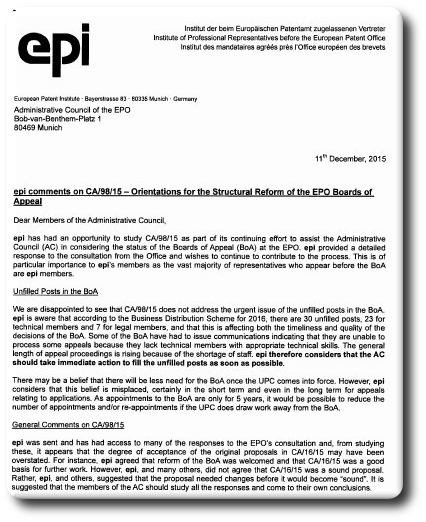



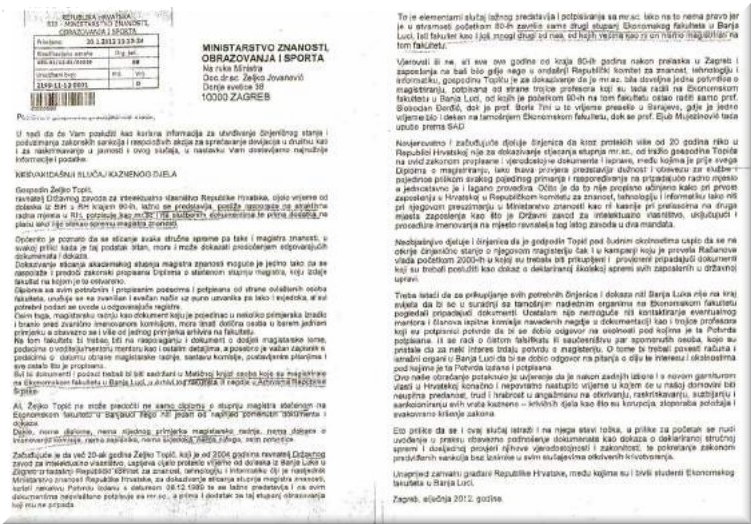
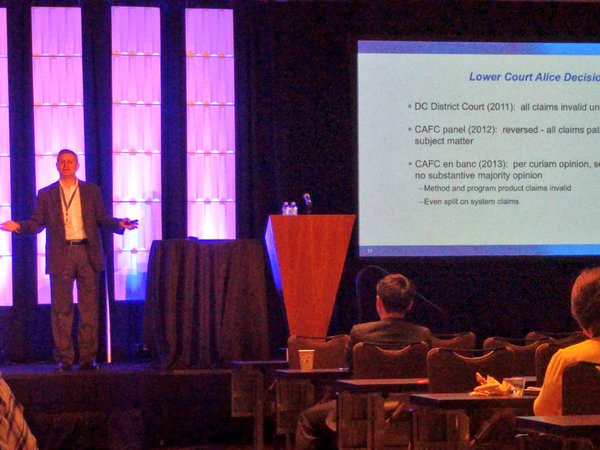
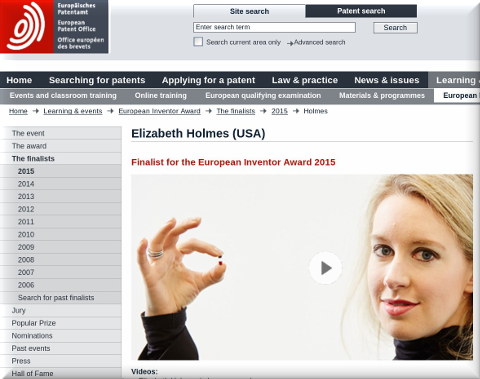

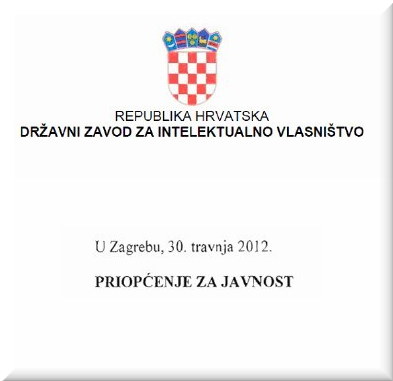
















 Content is available under CC-BY-SA
Content is available under CC-BY-SA